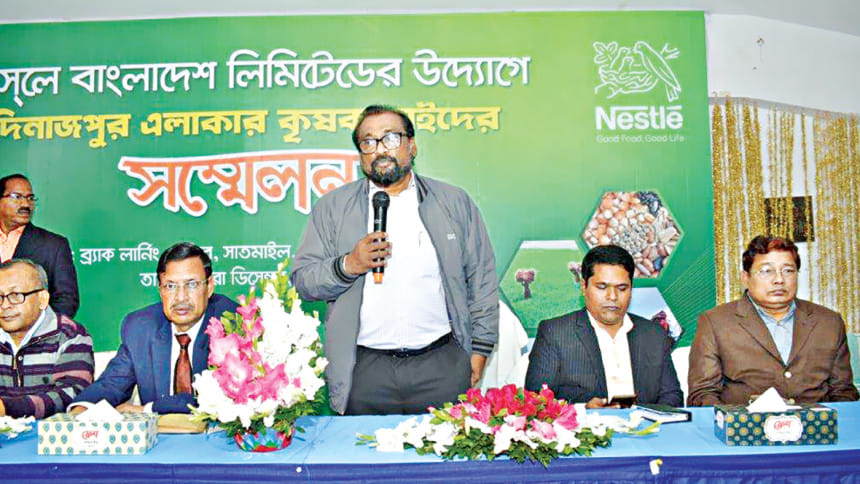Farm to Fork: A responsible way of production by Nestlé

The largest food and beverage company in the world — Nestlé — has been practicing a sustainable approach to production that is beneficial to the organisation, society, the environment as well as the consumers. With their wide variety of Nestlé products, you probably come across at least one every day. To ensure that these products are of standard quality, compliant, sustainable, and leave as less carbon footprint as possible, Nestlé globally has an impactful approach, "Farm to Fork" and Nestlé Bangladesh also opted for the approach for their food products.
Whether you are thinking of your morning coffee or snacks for your evening, Nestlé products are available for everyone. With an assuring motto such as "Good food, Good life," it is only logical that Nestlé cares about the standards of their products.
Even a few years ago, people were not particularly concerned about the origin or details of the products they consumed. But times have changed. Now, people want to know, what is in their food. How it was produced? Is it affecting the environment negatively? Nestlé not only addresses these questions but also takes another step forward.
Previously, Nestlé Bangladesh used to import rice from abroad as required material as per Nestlé stringent quality parameters and specifications were not available in Bangladesh. This left a higher carbon footprint. So, Nestlé took initiatives to meet the challenge. They started a project of 'Connecting farmers for sustainable sourcing of rice, wheat, maize and spice' where hundreds of farmers were trained. These cultivators are now successfully producing rice that meets the high standards of Nestlé and thanks to these farmers, now 100 per cent of Nestlé's rice products are produced locally.
Similarly, wheat, maize, and spice products grown locally are slowly making their way into Nestlé through impactful initiatives. This ensures that these products are healthy and meet the stringent standard that Nestlé maintains. The approach to meeting high standards begins in the field. From defining the specifications of raw materials to soil and water testing along with a myriad of other tests carried out regularly, the process of producing quality products is rigorous. With such standards, Nestlé boasts their approach, as they say, 'we unlock the power of food to enhance the quality of life for everyone, today and for generations to come.'
Globally, Nestlé is aiming for zero carbon emissions by 2050. As a part of that global mission, Nestlé Bangladesh attempts to reduce its carbon emission and bring it to zero by 2050 as well. With a lasting impact on agriculture, the aim is to maintain the Sustainable Development Goals (SDGs) and provide quality products to the average consumer.

For Nestlé, "Good food, Good life," is more than a motto. It is a commitment. Initiatives such as 'On-Shelf Availability' (OSA) and 'On-Shelf Freshness' (OSF) are measures undertaken by Nestlé to ensure that the commitment is met. By focusing on locally produced and responsible sourcing of raw materials, Nestlé Bangladesh can now rely less on imports. This means they can create a supply base that is both dynamic and socially responsible and can achieve cost savings by overcoming quality and food safety issues.
Next time you are at the grocery, think about what type of product you would rather buy. One that is imported and leaves a higher trail of carbon footprint? Or, locally produced quality products those meet all the food and health safety standards and are sustainably produced?
There should be no compromise when it comes to food. If you eat healthily, you will remain healthy — as simple as that. Fresh food is not only superior in taste but also good for your health. That is where Nestlé comes in with their 'Farm to Fork' approach. Because after all, 'Good food, Good life.'
Photo: Nestlé

 For all latest news, follow The Daily Star's Google News channel.
For all latest news, follow The Daily Star's Google News channel. 



Comments